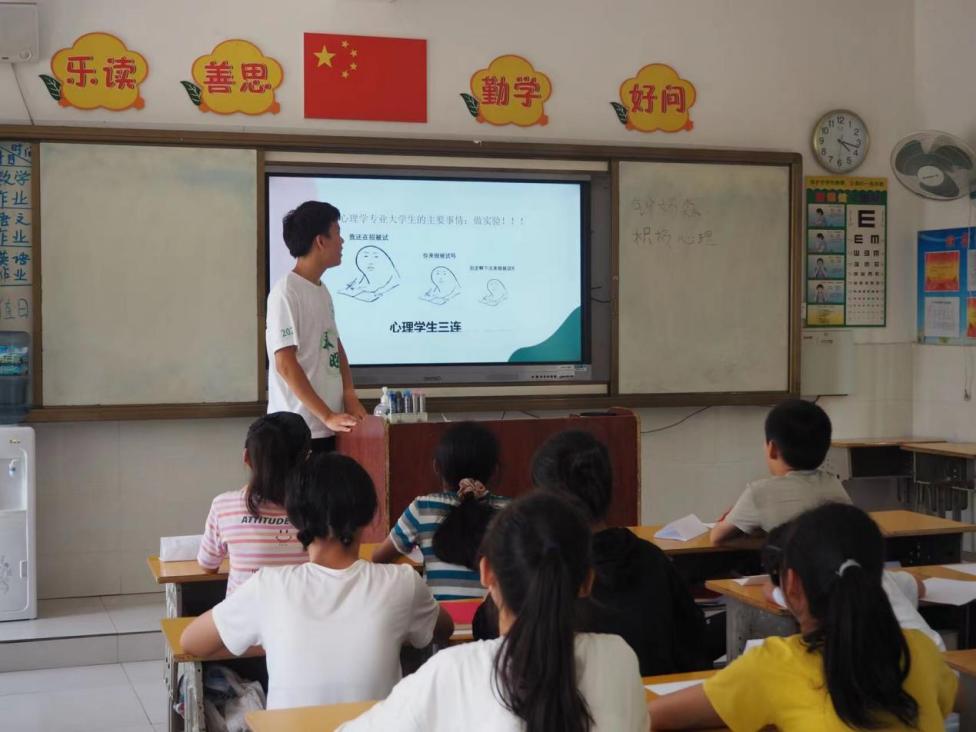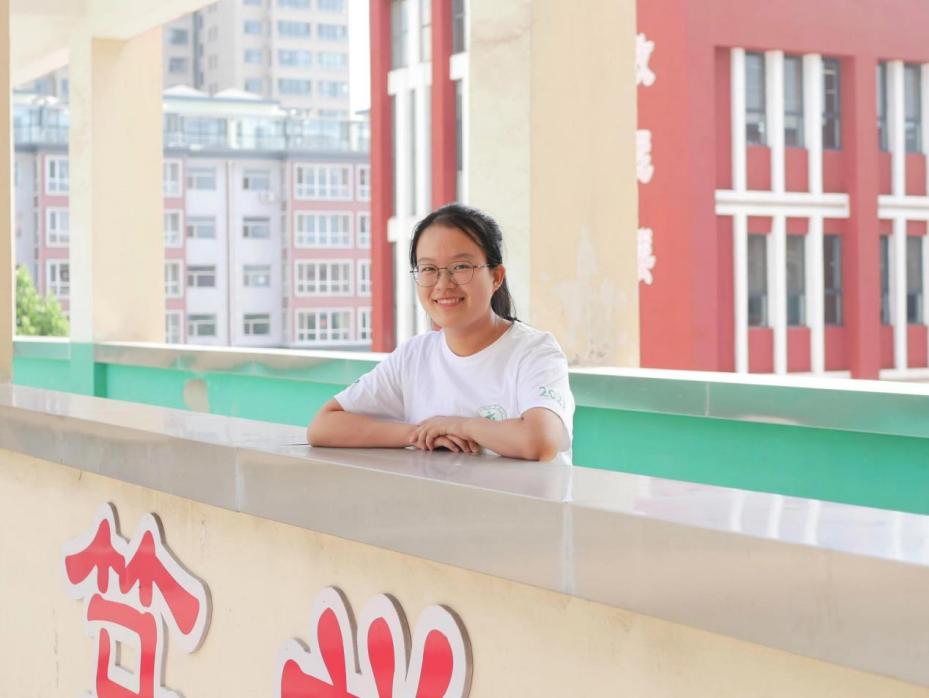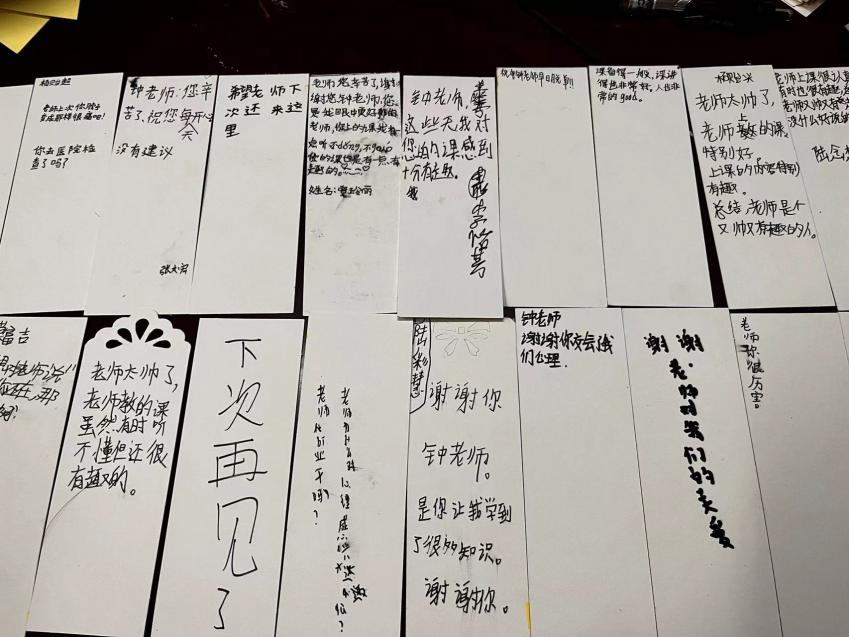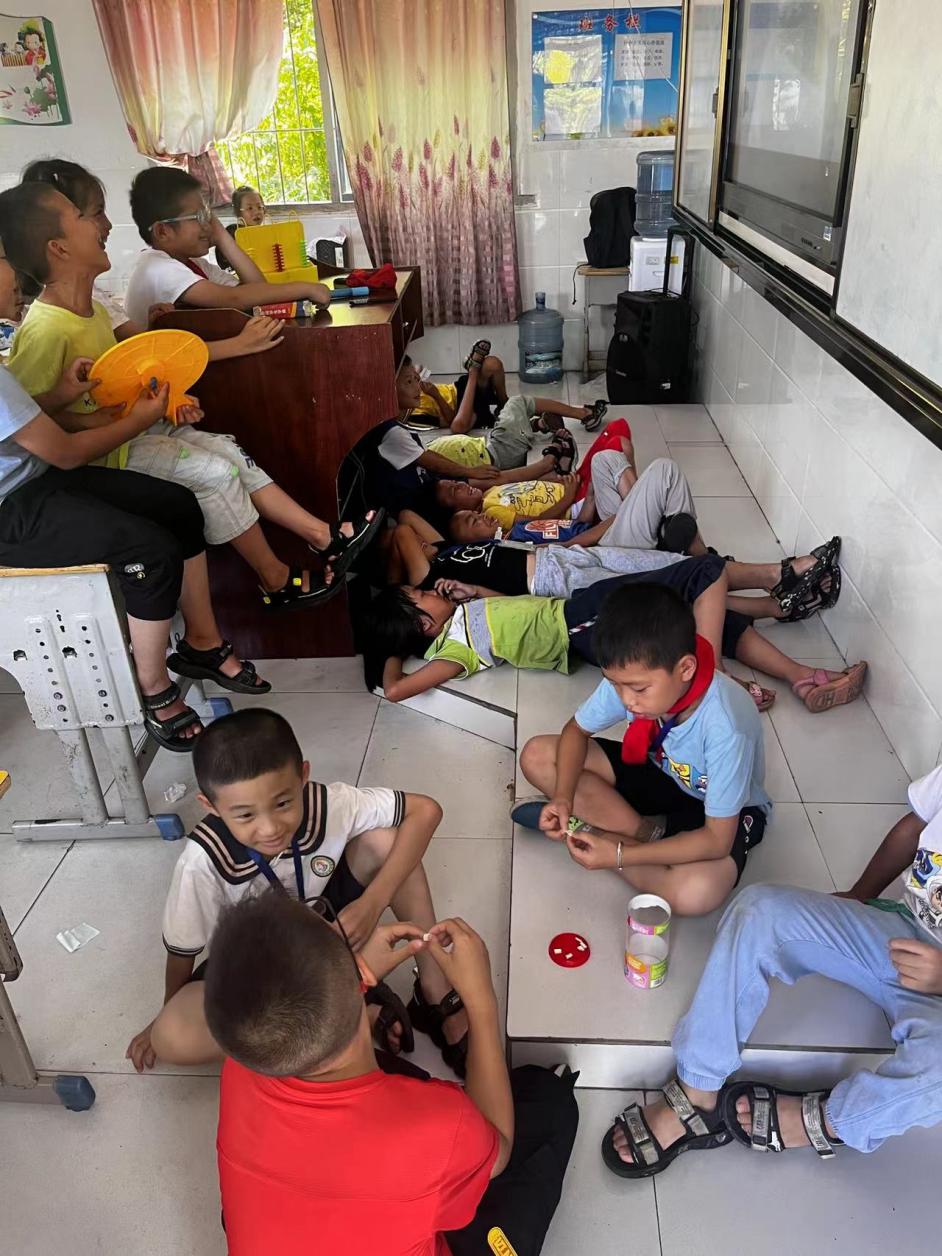“What can we bring to them?” This is a question repeatedly asked by participants in the Chunhui volunteer education program.
This summer, the Chunhui Charity Center of Wuhan University (WHU) continued with its popular volunteer program——offering educational support to pupils in rural China. On July 17, four teams comprising 61 students of WHU arrived in Guangxi province, Jiangxi province, and Shanxi province, respectively, beginning their exciting chapter as volunteer teachers.
Liu Xiaoyan, a sophomore from the School of Journalism and Communication, was one of them. She became a volunteer teacher in Shuren Primary School, Huguan County, Changzhi City, Shanxi Province.
“What do the kids need?” She asked herself before the trip. In her eyes, studying in a school that lacks aesthetic and physical education means that the students’ interests and mental health tend to gain less attention. Therefore, Liu decided to bring to them insights from psychology. “I hope this curriculum will become an inspiration to their interests, rather than another stress factor.”
With the intention of caring for the kids’ mental health, Liu began her teaching. She introduced some psychological theories to the students, helping them know themselves, control their tempers, and communicate with others. Meanwhile, she set many interesting games during the class in order to make them learn knowledge through fun.
Zhong Yangsen, a volunteer working in Lexiang Primary School, Yangshuo County, Guilin City, Guangxi Zhuang Autonomous Region, also chose to teach psychology. As a student majoring in psychology, he brought them positive psychology lessons, hoping to cultivate the students’ positive characteristics.

Zhong Yangsen introducing psychology in his class
However, the outcome was not what he had expected. The students didn’t cooperate in the activities he held, and they showed little interest in the theories either. “There is always a distance between ideal and reality,” Zhong said frankly. “We had expected to change the students through our endeavor, but indeed we produced little effects. 21 days was too short.”
Liu also confronted the same situation. She repeatedly emphasized the idea to “never insult others”, but some students still did that when interacting with others. With the program running, more problems were revealed: since the kids’ concentration and learning ability were limited, the history and geography classes ran into difficulties.
However, it was these obstacles and disappointments that provoked reflective thinking in these volunteer teachers. “What exactly can we bring to them?”
A small thing Liu shared might offer an answer. During a psychology class, a teacher let the students design their own business cards and introduce themselves to the whole class. When it was an introverted girl’s turn, she was too shy to share her card in public. However, under the teacher’s encouragement, she decided to stand on the podium. While the card looked crooked and imperfect, the sentence on it read firmly, “A great try, even if failed, is spectacular.” “I always fail due to my shyness, so I want to use this proverb to guide myself,” the girl bravely explained.

The girl sharing her card on the podium
A good try may give guidance to successful individuals, whether it failed or not. Similarly, the significance of the volunteer teachers’ existence lies in their ability to guide. Just as Zhong said, “We may bring them knowledge, caring, and company. But in my eyes, the most important thing we bring is guidance.” Stand by them to encourage them and guide them to go further. Here is probably where the true meaning of teaching lies.
“Even if there is just one person who benefits from this education program, our endeavor is not in vain,” both Zhong and Liu said.
The volunteers did bring some changes. Three weeks later, the students were quite familiar with Liu. They were willing to open up their hearts to her. “A girl wrote a long letter to me after talking about her family troubles. I think her mental state became better than before,” Liu said.

A photo of Liu taken by her student
Zhong’s hard work also paid off. When the farewell approached, he received many thanksgiving words from the students. Although the psychological theories he introduced were difficult for them to understand, his caring and patience won their hearts.

The thanksgiving cards Zhong received from the students
“I always believe that no effort is made in vain,” Zhong said, “I grew up in rural China, and I was more mature than my contemporaries, which made me feel lonely during my growing up. I was always longing for a teacher to communicate with, but I didn’t meet one that could guide me. Therefore, I hope I can become a teacher in the future, bringing knowledge, company, and guidance to the kids in rural areas.”

Kids enjoying the break between classes
Like Zhong, with this belief and dream, more students from Wuhan University are on the way to rural China, imparting knowledge, offering company, and giving guidance to more kids.
Photo by Liu Xiaoyan & Zhong Yangsen
Edited by Li Jing, Liang Tong, Sylvia, Xi Bingqing